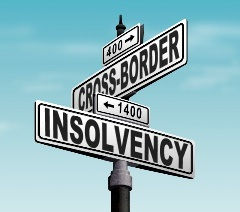Navigating Insolvency: Understanding Demand Notices under Section 8 of the Insolvency & Bankruptcy Code
- Rishabh Arora
- Mar 19, 2024
- 3 min read
In the realm of corporate finance and commercial transactions, encountering financial disputes and defaults is not uncommon. In such instances, parties often resort to legal mechanisms to seek recourse and recover outstanding dues. One such crucial aspect of insolvency proceedings in India is the issuance of demand notices under Section 8 of the Insolvency & Bankruptcy Code (IBC), 2016. Understanding the significance of these notices and the steps to take upon receiving one is paramount for individuals and entities involved in commercial transactions. At Legafide, we provide comprehensive guidance on navigating through these intricate legal proceedings, ensuring that our clients' interests are safeguarded at every step.
Understanding Demand Notices under Section 8
Section 8 of the IBC pertains to the initiation of the corporate insolvency resolution process by operational creditors. An operational creditor, defined under the IBC, includes any person to whom an operational debt is owed and includes creditors such as suppliers, service providers, and employees. When an operational creditor intends to initiate insolvency proceedings against a corporate debtor, they are required to issue a demand notice under Section 8 of the IBC.
Key Elements of a Demand Notice
A demand notice under Section 8 of the IBC serves as a formal communication from the operational creditor to the corporate debtor, intimating them of the default in payment and demanding repayment of the outstanding debt. The demand notice must fulfill certain statutory requirements, including:
Identification of Parties: The demand notice should clearly identify both the operational creditor and the corporate debtor, including their names, addresses, and other relevant details.
Details of Debt: It should specify the particulars of the debt owed by the corporate debtor to the operational creditor, including the amount outstanding, the nature of the debt, and any relevant documentary evidence supporting the claim.
Demand for Payment: The notice should unequivocally demand payment of the outstanding debt within the stipulated timeframe, which is typically ten days from the receipt of the notice.
Compliance with Legal Requirements: It is essential to ensure that the demand notice complies with the procedural and substantive requirements prescribed under the IBC and other relevant regulations.
Response to a Demand Notice
Upon receiving a demand notice under Section 8 of the IBC, the corporate debtor has ten days to either:
Pay the Debt: The debtor can choose to make payment of the outstanding debt mentioned in the notice within the stipulated timeframe. In such cases, the matter is considered resolved, and no further action is required.
Dispute the Debt: If the corporate debtor disputes the existence or amount of the debt mentioned in the notice, they are required to communicate the same to the operational creditor within the ten-day period. In such instances, the parties are encouraged to engage in negotiations to resolve the dispute amicably.
No Response: Failing to respond to the demand notice within the prescribed timeframe may lead to the operational creditor initiating insolvency proceedings against the corporate debtor before the National Company Law Tribunal (NCLT).
Seeking Legal Assistance
Receiving a demand notice under Section 8 of the IBC can have significant implications for both operational creditors and corporate debtors. It is imperative to seek timely legal counsel to assess the merits of the claim, formulate an appropriate response strategy, and navigate the intricacies of insolvency proceedings.
At Legafide, we specialize in providing comprehensive legal assistance to clients involved in insolvency proceedings under the IBC. Our team of seasoned legal experts possesses extensive experience in representing both operational creditors and corporate debtors, ensuring that our clients' interests are protected and advocating for optimal outcomes.
Conclusion
Demand notices under Section 8 of the Insolvency & Bankruptcy Code play a pivotal role in initiating insolvency proceedings and resolving financial disputes between operational creditors and corporate debtors. Understanding the statutory requirements and taking prompt action upon receiving a demand notice is crucial for effectively navigating through the complexities of insolvency proceedings.
At Legafide, we offer unparalleled expertise and guidance in handling insolvency matters, providing tailored solutions to meet our clients' specific needs. Contact us today to learn more about how we can assist you in addressing demand notices under the IBC and safeguarding your interests in insolvency proceedings.



